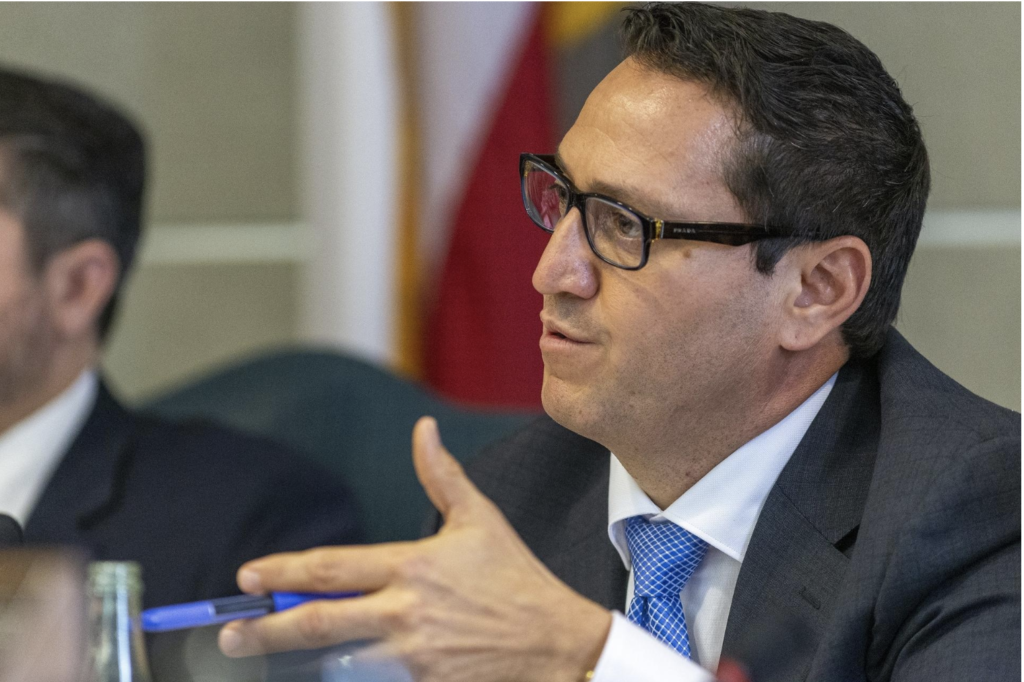Texas lawmakers debate need for state incentives programs
By: Bob Sechler (Austin-American Statesman)

The merits of taxpayer-funded business incentives — described alternatively as either crucial tools for economic development or wasteful corporate giveaways — took center stage Wednesday as a Texas House committee heard debate over key tax abatement programs used by local governments and school districts.
“I would much prefer that we didn’t need (tax) incentives, but we don’t live in an ivory tower,” Dale Craymer, president of the Texas Taxpayers and Research Association, said during a hearing over House Bill 2438, which would reauthorize the two types of tax abatements through 2032.
He was one of many supporters of the abatements — known as Chapter 312 and Chapter 313 agreements, after the sections of the tax code in which they appear — who turned out to voice support for the programs. Business groups in Texas have previously called continuation of the state’s various taxpayer-funded incentive programs critical to the continued health of the state’s economy.
A number of opponents also spoke, however, criticizing tax abatements as expensive handouts for the private sector and saying they’re often used to pay businesses for actions they were going to be take anyway.
Corporations “are going to come to Texas with or without these tax breaks,” said Dick Lavine, senior fiscal analyst at the left-leaning Center for Public Policy Priorities, who was speaking about House Bill 2129, which also would extend Chapter 313 authorization through 2032. “Some of these (projects) might not have come, but most were going to come for the other good reasons” to do business in the state.
In addition to HB 2438 and HB 2129, the House Ways and Means Committee held public hearings Wednesday over a number of related bills aimed at the two tax abatement provisions, including one that would add to the type of development projects eligible for abatements from school districts. The Chapter 312 provision of the tax code authorizes local governments to abate property taxes but is set to expire on Sept. 1 this year, while the Chapter 313 provision authorizes school districts to do so and expires at the end of 2022.
Committee members were largely non-committal on many of the bills and left them pending without taking votes, although several voiced skepticism of House Bill 845, which would add standalone water desalination projects to the list of developments eligible for abatements from school districts under Chapter 313. Currently, desalination agreements are only eligible as part of larger industrial projects.
“It seems to me that without this (tax) incentive, there is already a profit incentive” for desalination companies to build plants in Texas, said state Rep. Matt Shaheen, R-Plano, noting that if the demand for fresh water is here such projects aren’t something that another state can necessarily lure away.
But supporters of the bill, filed by state Rep. J.M. Lozano, R-Kingsville, said incentives for desalination plants would make coastal regions and other areas of Texas suffering from limited fresh water supplies more competitive against other states in terms of attracting economic development projects.
“A primary concern (on the Texas coast) is water supply,” said Richard Whiting, vice president of business development at Seven Seas Water Corp., which is building a desalination plant near the Corpus Christi ship channel. He said the project “could be replicated elsewhere in several areas of the Texas coast” with the help of financial incentives.
But state Rep. Trey Martinez Fischer, D-San Antonio, echoed Shaheen’s questioning, noting that Whiting’s company is “coming to Texas because it has the water you seek to produce,” which has little to do with taxpayer-funded financial incentives.
Overall, however, supporters of the 312 and 313 abatement provisions said Texas would be at a stark disadvantage without them.
“We are a success story in Southeast Texas because of these tools,” said state Rep. Dade Phelan, R-Beaumont, a lead author of HB 2438. “If we don’t have 312 and 313, we will lose everything to Louisiana.”
Meanwhile, the Texas Public Policy Foundation, a conservative think-tank, Wednesday launched a statewide advertising campaign in an attempt to rally public sentiment against reauthorization of the Chapter 312 provision, citing what it called “sweetheart deals” for “corporate property tax breaks for renewable energy projects” in particular.
But representatives of a wide range of industries, including petrochemicals and manufacturing as well as renewable energy, turned out Wednesday to urge lawmakers to prevent the Chapter 312 provision from expiring and to extend Chapter 313.

